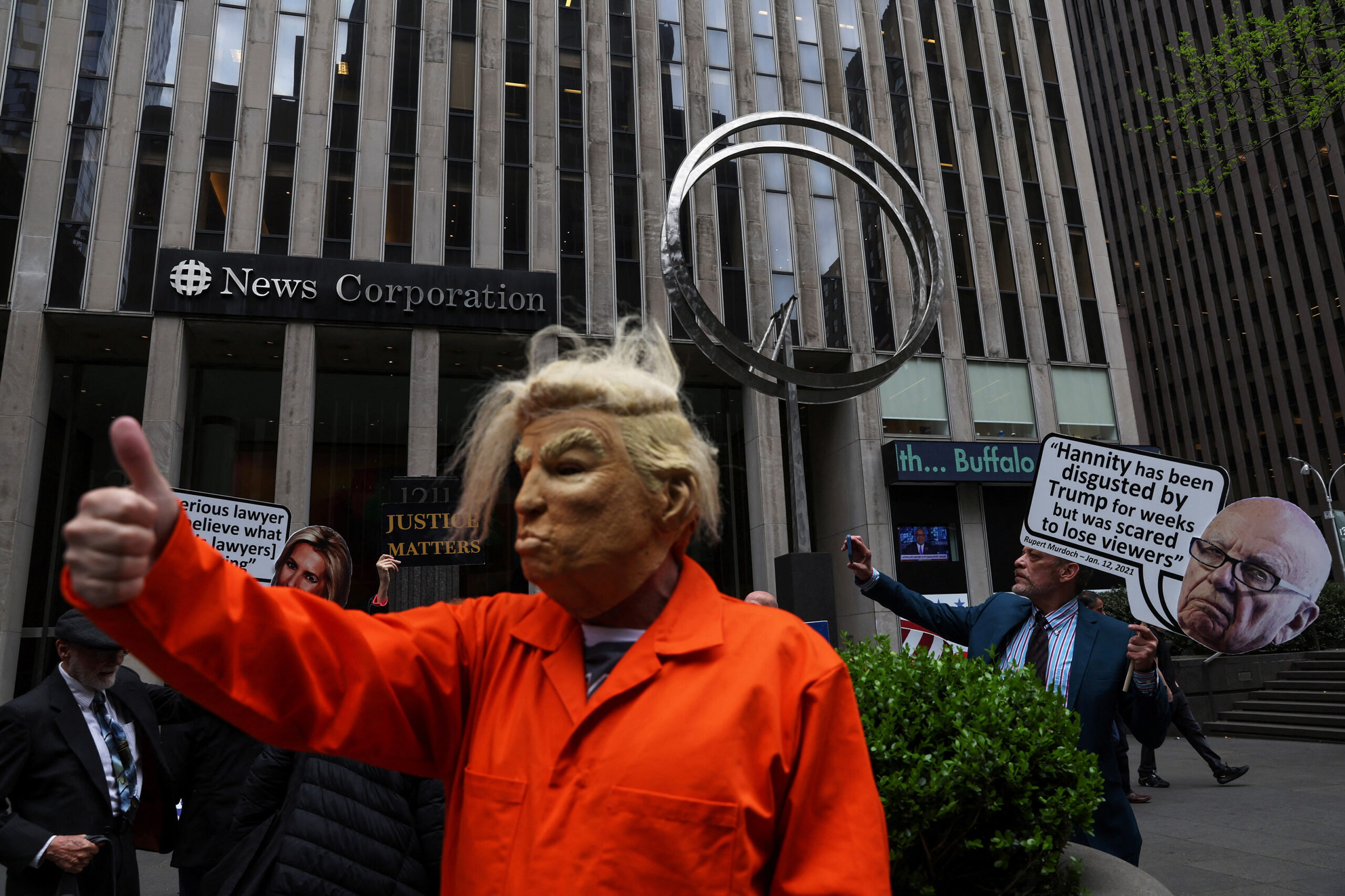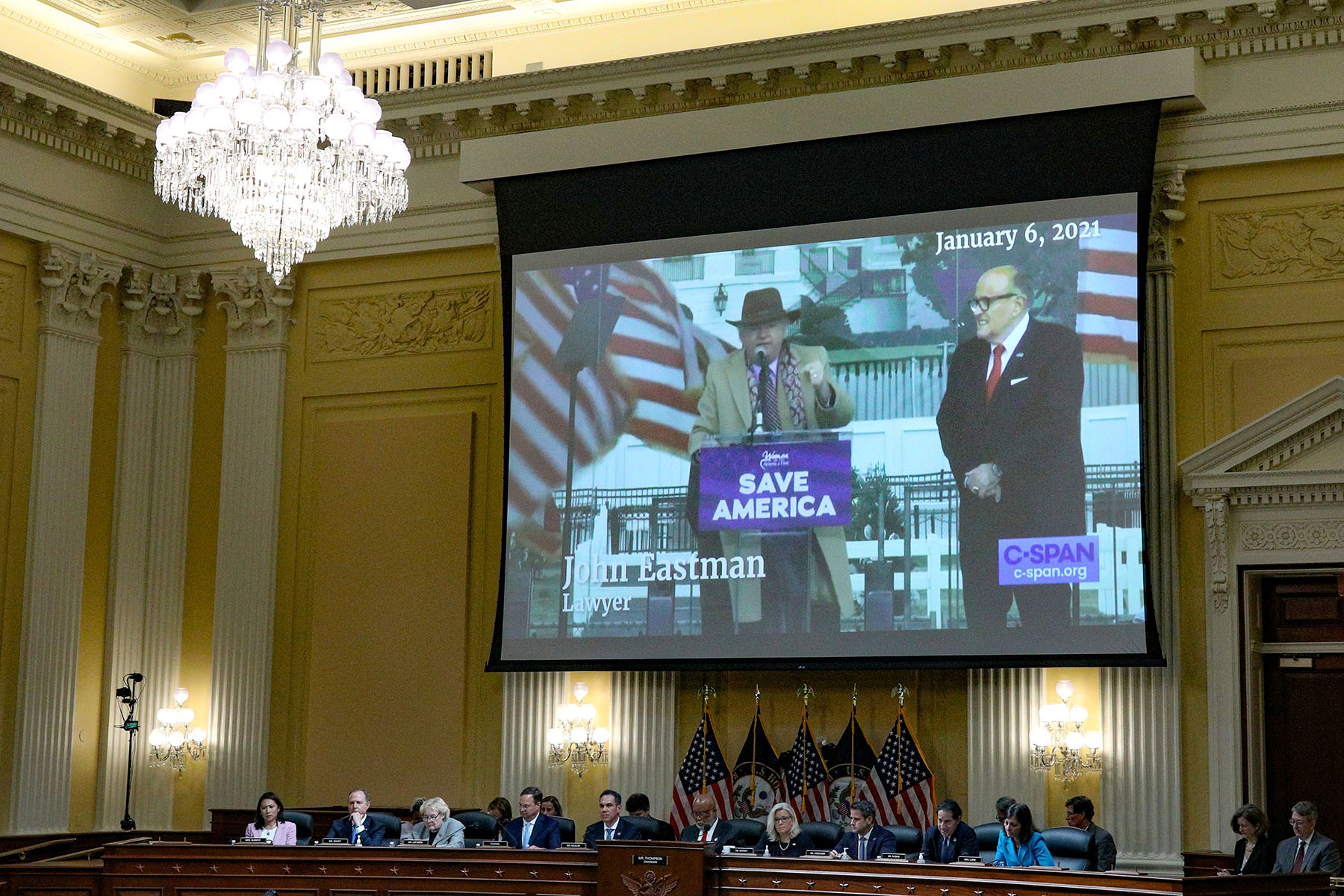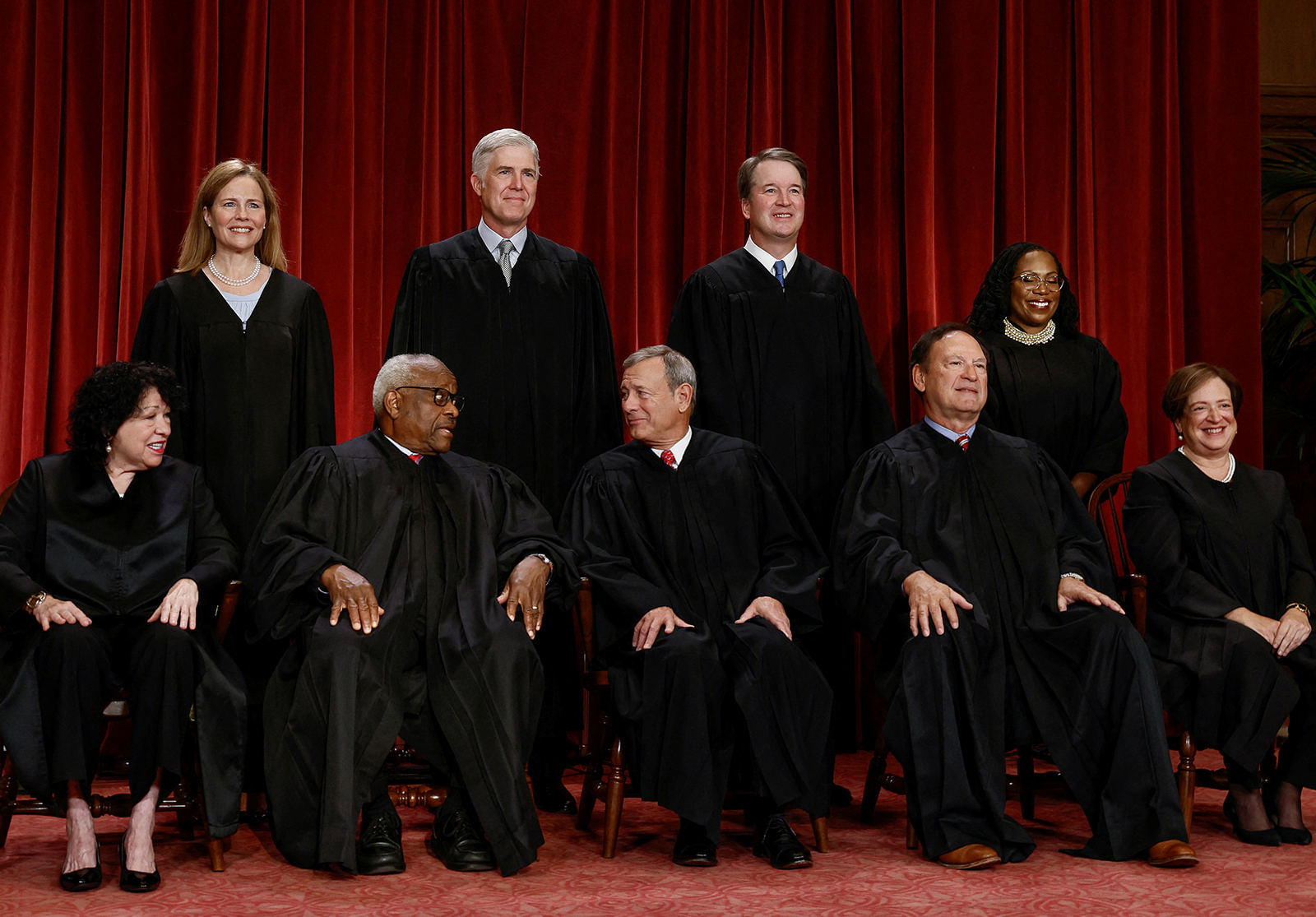A last-minute $787.5 million settlement agreement was reached April 18 in Dominion Voting Systems’ defamation lawsuit against Fox News and its parent corporation, in which the voting technology company claimed the network knowingly spread false claims about Dominion and that its technology was used to rig the 2020 presidential election.
During a trial, 12 jurors would have had to decide if Dominion could prove, under the New York Times v. Sullivan standard of “actual malice,” whether Fox aired those falsehoods about Dominion knowing that they were false or with reckless disregard for the truth.
For months, this case has made headlines as the pre-trial deposition testimony from Fox Chairman Rupert Murdoch and Fox hosts provided a behind-the-scenes look into the networks’ actions and motivations. But without a trial, these testimonies will never be heard in open court.
While a settlement was reached in this case, another lawsuit involving a separate voting technology company is underway, with similar claims. Smartmatic sued Fox News, three of the network’s hosts, and two of its guests in February 2021 for $2.7 billion claiming the network spread false rumors that the company’s technology was used to rig the election in favor of President Joe Biden.
At First Amendment Watch, we asked five legal scholars to give their thoughts on the case.
Samantha Barbas, Professor of Law, University at Buffalo School of Law
 FAW: The case did not go to the jury, but did the settlement provide meaning to intentional or reckless falsehood as it applied to Fox?
FAW: The case did not go to the jury, but did the settlement provide meaning to intentional or reckless falsehood as it applied to Fox?
SB: Fox settled because it knew that there was a very strong chance that Dominion would be able to meet the constitutional standard of actual malice — intentional falsehood or reckless disregard of the truth. The evidence that was made public before trial illustrated that Fox continued to make false statements about purported election fraud even after its hosts and executives knew that the statements were untrue. That is a textbook example of actual malice.
The outcome of this case reveals that libel law is not dead in America, contrary to what some have claimed. The actual malice standard is difficult to meet but not impossible. The First Amendment is not absolute; it does not protect intentional defamatory falsehoods. This case illustrates how New York Times v. Sullivan set a wise balance between protecting free speech and protecting reputation.
FAW: What meaning do we take away from the settlement about Fox’s coverage of the election and its aftermath?
SB: Fox’s settlement for over $787 million indicates that Fox knew that it had engaged in wrongdoing and that it was likely to lose at trial. Even without a trial, the legal proceedings and settlement discredited Fox and its election coverage.
Martin Garbus, First Amendment lawyer
FAW: During an interview April 18 on NPR, you referenced 20 statements made by Fox employees which had been made public during the release of court briefs. Which among them did you think was the most damaging to Fox’s defense and why?
MG: The statements made internally were the most damaging. All related to on-air statements. For example, quoting Rudy or Powell when Fox people had described them internally as liars or not believable or with great skepticism made those on-air quotes damaging.
FAW: Will this lawsuit, its single-day trial and the settlement have a lasting impact on how the American public views journalists and journalism?
As much as anything else, nothing has a lasting impact except that it will make newscasters and networks like Carlson and Fox adopt internal rules so they will not print the kinds of notes and memos that Carlson et al. made. Had they not made those internal documents they might have won. Or at least they could have a triable case which Fox did not have.
Lyrissa Lidsky, law professor and First Amendment lawyer
FAW: What meaning do we take away from the settlement about Fox’s coverage of the election and its aftermath?
LL: The settlement indicates Fox felt it was in jeopardy of losing the case at trial, and the amount of the settlement indicates Fox was worried about a jury potentially awarding even more massive damages to Dominion. The judge had already found the statements Fox published about Dominion’s voting machines to be false and defamatory, and the trial was set to focus on whether key figures within Fox knew or recklessly disregarded that the statements they were publishing concerning Dominion were false. In addition to putting a ceiling on damages, Fox’s decision to settle enabled it to avoid the disruptive effect of the trial on its operations and stem further damage to Fox’s reputation as a journalistic operation.
FAW: This is not the only lawsuit awaiting Fox on its false claims. Next up is the Smartmatic defamation lawsuit with an even bigger plaintiff request for $2.7 Billion. Is the same outcome likely here?
LL: The fact that Fox settled the Dominion case for such a large amount should hearten Smartmatic and its legal team, because it indicates that Fox is aware of its vulnerability on the actual malice and damages issues. Nonetheless, each case must be litigated on its own merits, and Smartmatic’s case is about what Fox said about Smartmatic, not what it said about Dominion. Some of the evidence Dominion uncovered concerning contemporaneous doubts key Fox personnel had about the accuracy of their election coverage may benefit Smartmatic, but some will not. A key issue will be whether Fox knew or recklessly disregarded that the statements it was publishing about Smartmatic were false—not whether Fox knew Trump didn’t win the election or whether Fox knew the statements about Dominion were false. It’s worth pointing out that Smartmatic brought its case in state court in New York rather than Delaware, and that Smartmatic is asking for even more in damages than Dominion sought.

Demonstrators rally during a “Truth Tuesdays” rally outside the News Corporation building in New York City, April 18, 2023. (Reuters/Shannon Stapleton)
Timothy Zick, First Amendment scholar
 FAW: What meaning do we take away from the settlement about Fox’s coverage of the election and its aftermath?
FAW: What meaning do we take away from the settlement about Fox’s coverage of the election and its aftermath?
TZ: This was one of the largest defamation settlements in U.S. history. The $787 million in damages are certainly a form of accountability for Fox’s repeated publication of some of the falsehoods it aired about the 2020 election. That said, we should not overstate the settlement’s significance. A civil defamation lawsuit, (or even several of them), cannot cure the larger evil of misinformation and falsehood concerning our election systems. The defamation claims against Fox are ultimately about damages to the companies’ reputations, not saving democracy. Civil lawsuits and settlements alone cannot eradicate the Big Lie.
It’s notable that Fox will not issue an on-air apology for its conduct as part of the settlement. Nor does its post-settlement statement take responsibility for publishing falsehoods, noting only that the judge had concluded some of its statements were false. This raises the question whether Fox will change its reporting practices in light of the settlement. In that regard, consider that even after Dominion and Smartmatic sued Fox, the network continued to report on unsubstantiated “election fraud” during the 2020 presidential election – though it was careful not to mention Dominion or Smartmatic by name. The lesson Fox may have learned is that lawsuits and large settlements are the cost of doing business if the company wants to retain its viewers.
FAW: This is not the only lawsuit awaiting Fox on its false claims. Next up is the Smartmatic defamation lawsuit with an even bigger plaintiff request for $2.7 Billion. Is the same outcome likely here?
TZ: It seems likely that the Smartmatic lawsuit will also be settled by the parties prior to trial. Smartmatic will surely be emboldened by the Dominion settlement. Like Dominion, Smartmatic has compelling evidence that Fox published lies about the company that it knew to be false (although in the Smartmatic case, a New York appeals court has ruled that Smartmatic is not a “limited purpose public figure,” which means it will not have to meet the “actual malice” standard to prevail at trial).
That said, jury trials come with considerable risks for both parties. Fox may wish to settle with Smartmatic for the same reasons that likely led it to settle with Dominion – to avoid public scrutiny of its reporting practices and prevent public testimony from Rupert Murdoch and others. Smartmatic might be concerned that a jury will credit Fox’s “reporting on newsworthy matters” defense and/or may have concerns about proving it was harmed to the tune of $2.7 billion. A settlement would hardly be unusual. Most defamation cases settle prior to trial, and Fox has a history of settling such lawsuits.
Sandra Baron, Visiting Clinical Lecturer in Law at Yale Law School
 FAW: The case did not go to the jury, but did the settlement provide meaning to intentional or reckless falsehood as it applied to Fox?
FAW: The case did not go to the jury, but did the settlement provide meaning to intentional or reckless falsehood as it applied to Fox?
SB: “Actual malice” can be a challenging concept in litigation, as it fundamentally looks at the subjective mindset of individuals engaged in the news gathering and publishing process. It often relies upon an accumulation of statements and events and evidence that strung together allows an adequate inference that the journalists involved either did or did not publish with knowing falsity or reckless disregard for the truth.
While we did not hear the entirety of the evidence in this case, and of course did not have the benefit of whatever evidence might have been developed from testimony at trial, the litigation to date had exposed statements from the Fox executives and staff that were quite remarkable from an “actual malice” perspective. The fact is that it is rare – indeed, virtually unheard of – for there to be the wealth of evidence in the record of the kind we saw from those in the Fox operations to the effect that they did not believe what was being published out of their media. From the very top to the talent to seemingly all aspects of the broadcast operations, employees were sending email and texts and ultimately conceding in depositions that they did not believe the people they put on the air (and ultimately on ancillary media) were telling the truth.
As a result, I do not think this litigation will have a significant impact on the law of “actual malice” or how it is litigated. It might, however, inform those who are engaged in speech related endeavors to watch what they put in email or on various social media options.
FAW: Will this lawsuit, its single-day trial and the settlement have a lasting impact on how the American public views journalists and journalism?
SB: I hope not, and indeed, do not think it will have a lasting impact on how the public views journalists and journalism. Most of us have a relationship with media we read or listen to or watch on a regular basis. In this polarized society in which we live, we may also have strong views about those media that espouse views we see as deeply oppositional to what we believe from the media with which we regularly engage. I think that the verbal rock throwing between fans of Fox and, for example, fans of MSNBC, are the unfortunate side effect of the polarization of society. We believe what we believe and disbelieve those who disagree. I suspect that this litigation confirmed the suspicions many had about Fox and what was behind its content choices. How those who regularly watch Fox and are fans of its content view what has transpired is as yet unknown. Many may have had no idea of the evidence in the case. It surely wasn’t presented to them on Fox programming. And, if the reports are accurate, ratings remain up for Fox.
Read more of First Amendment Watch’s coverage of the lawsuit here
Tags






